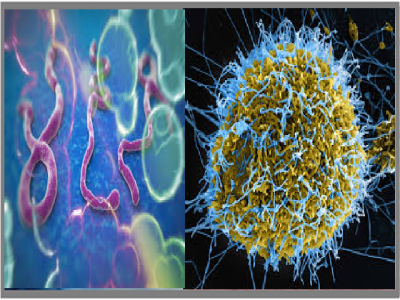Ebola outbreak confirmed in Tamale

Health officials in Ghana has confirmed an outbreak of Ebola Virus Disease in the Northern Region.
The confirmation was made by the Regional Disease Control Officer, Fuseini Mahama.
According to Ghana News Agency (GNA), the Public Health Emergency Response Team has been deployed to contain the situation.
Ebola Virus Disease (EVD) is a rare and deadly disease in people and nonhuman primates.
The viruses that cause EVD are located mainly in sub-Saharan Africa and people can get EVD through direct contact with an infected animal (bat or nonhuman primate) or a sick or dead person infected with Ebola virus.
The U.S. Food and Drug Administration (FDA) has approved the Ebola vaccine, ERVEBO®, for the prevention of EVD. ERVEBO vaccine has been found to be safe and protective against only the Zaire ebolavirus species of ebolavirus.
Signs and Symptoms
Symptoms may appear anywhere from 2 to 21 days after contact with the virus, with an average of 8 to 10 days. The course of the illness typically progresses from “dry” symptoms initially (such as fever, aches and pains, and fatigue), and then progresses to “wet” symptoms (such as diarrhea and vomiting) as the person becomes sicker.
Primary signs and symptoms of Ebola often include some or several of the following:
Fever
Aches and pains, such as severe headache and muscle and joint pain
Weakness and fatigue
Sore throat
Loss of appetite
Gastrointestinal symptoms including abdominal pain, diarrhea, and vomiting
Unexplained hemorrhaging, bleeding or bruising
Other symptoms may include red eyes, skin rash, and hiccups (late-stage).
Many common illnesses can have the same symptoms as EVD, including influenza (flu), malaria, or typhoid fever.
EVD is a rare but severe and often deadly disease. Recovery from EVD depends on good supportive clinical care and the patient’s immune response. Studies show that survivors of Ebola virus infection have antibodies (proteins made by the immune system that identify and neutralize invading viruses) that can be detected in the blood up to 10 years after recovery. Survivors are thought to have some protective immunity to the type of Ebola that sickened them.
More Soon…




